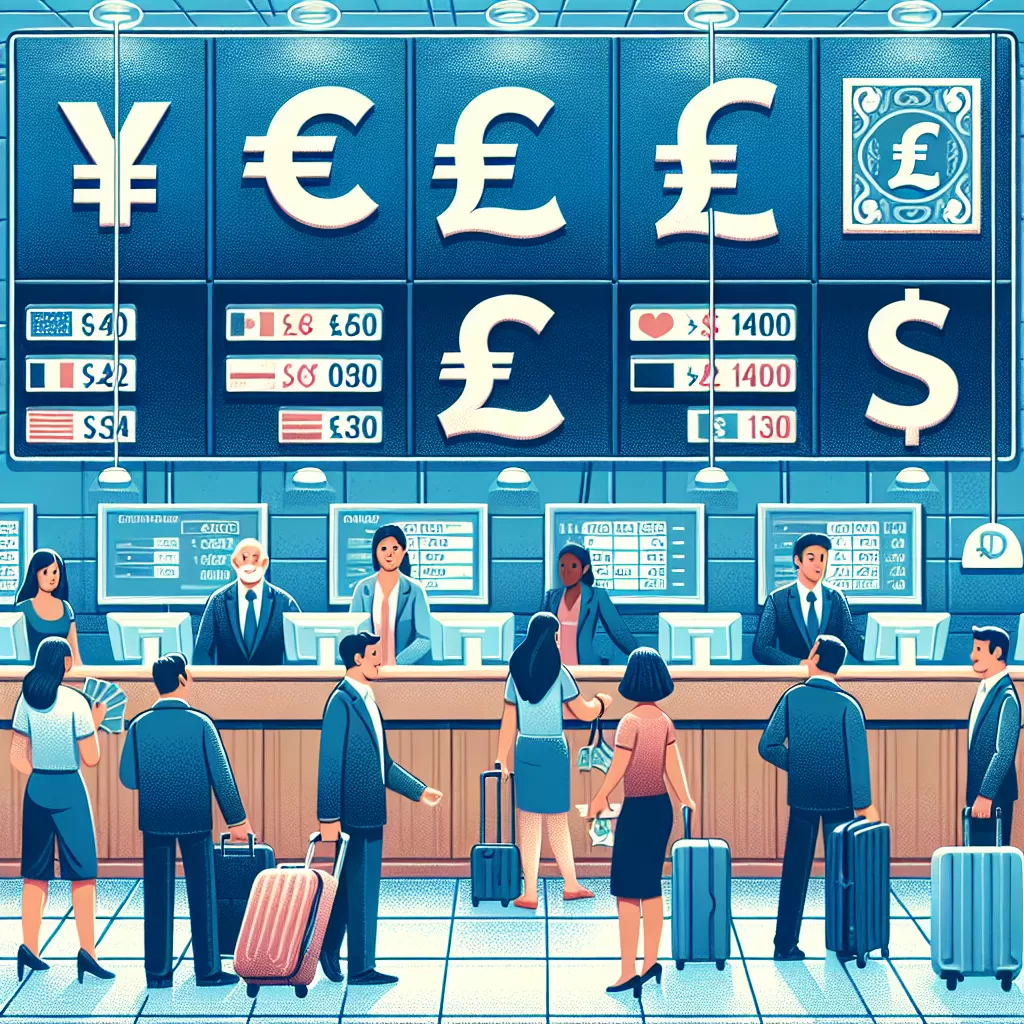Where Can Exchange Foreign Currency
Follow Currency Mart April 10, 2024
Where to purchase Foreign Currencies?

Introduction
The realm of currency exchange is vast and can sometimes be confusing. It is important to know the various options available to exchange foreign currency to avoid significant costs. This in-depth guide will cover some of the best places to exchange your currency.Commercial Banks
One of the most common ways to exchange foreign currency is through commercial banks. Whether you are depositing an international cheque or converting currencies for a trip, most big-name banks can handle a variety of currencies. However, while it is a reliable method, it may not always offer the ideal exchange rates, and additional transaction fees may apply.Credit Unions
Credit unions often provide better exchange rates and charge reduced fees compared to banks. Like commercial banks, they can handle a variety of foreign currencies. However, to access these services, one must be a member of the credit union.Currency Exchange Bureaus
Currency exchange bureaus, including Travelex and ICE (International Currency Exchange), specialize in offering competitive exchange rates. These bureaus are often found in tourist areas, airports, and online. The rates are generally better than banks, specifically for small quantities of money. However, keep an eye out for additional fees or commissions.Online Money Transfer Services
Online platforms like TransferWise, Revolut, and CurrencyFair offer competitive exchange rates and low service fees. They are a great option for transferring larger amounts of money internationally as their rates tend to improve with the increase in amount.Peer-to-Peer Exchange Services
These services link individuals looking to exchange currencies. The exchange typically happens at mid-market rates, saving costs on each side. This is relatively a new trend for currency exchange, and platforms like CurrencyFair facilitate such transactions.Foreign Exchange Brokers
Foreign Exchange Brokers help individuals and businesses get the best exchange rates, especially for large transactions. They watch the currency markets closely and execute trades when the rates are most favorable. However, this option may not be suitable for small-scale transactions.Prepaid Travel Cards
Prepaid travel cards or currency cards are a convenient way to carry money while traveling abroad. These cards usually offer decent exchange rates and allow easy reloading in a selection of currencies. Ensure to read the terms and conditions as some cards may have hidden fees.ATMs
Withdrawing money abroad from ATM machines can be a cost-effective way to access the local currency. Many global banks have international ATM alliances, which means you can withdraw money without paying fees. Make sure to check this with your bank before traveling overseas.Using Your Credit Card
Credit cards provide a handy way to pay for goods and services while abroad. Most credit cards use the master or visa exchange rate, which is often very competitive. However, foreign transaction fees and interest charges apply, so always check with your card provider.Conclusion
Currency exchange can occur through various mediums – each with its pros and cons. It is essential to research well in advance, compare rates, assess fees, and understand the benefits and restrictions of each option. A well-informed decision can save you significant sums in your currency exchange process. In the vast realm of currency exchange, understanding how these options work will ensure your money moves smoothly and efficiently across borders.
Where to purchase Foreign Currencies?